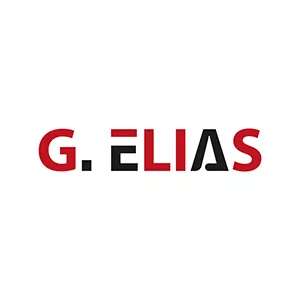- within Consumer Protection topic(s)
- in United States
- within Consumer Protection topic(s)
- with Finance and Tax Executives
- in United States
- with readers working within the Business & Consumer Services, Media & Information and Property industries
Introduction
The applicability of the Federal Competition and Consumer Protection Act, 2018 ("FCCPA") to consumer protection matters in the banking industry has been a subject of legal debate. There have been mixed judicial decisions by Nigerian courts on whether consumer complaints arising from banking transactions fall within the regulatory purview of the Federal Competition and Consumer Protection Commission ("FCCPC").
In this article, we examine the relevant provisions of the Banks and Other Financial Institutions Act, 2020 ("BOFIA") and the FCCPA on consumer protection matters, and recent decisions of Nigerian courts on the subject. We advocate for a balanced approach that harmonizes the roles of both the Central Bank of Nigeria and the FCCPC in protecting consumers.
Examining the Statutes
By section 65(1) of BOFIA, "provisions of the Federal Competition and Consumer Competition Protection Act shall not apply to any function, act, financial product, or financial services issued or undertaking, and transaction howsoever described by a bank or other financial institutions licensed by the Bank". This section has been relied upon by proponents of the argument that the FCCPA does not apply to any matter or issue in the banking industry, including consumer protection.
However, section 104 of the FCCPA states that "notwithstanding the provisions of any other law, but subject to the provisions of the Constitution of the Federal Republic of Nigeria, in all matters relating to competition and consumer protection, the provisions of this Act shall override the provisions of any other law." Section 105(2) of the FCCPA also provides that where there is an inconsistency between the FCCPA and any other law concerning competition and consumer protection, the FCCPA shall prevail.
The Judicial Decisions
Lamfat Gas Nig. Ent. Limited v Kuda Microfinance Bank (Suit No.: LD/6869GCM/2023)
The Claimant instituted this suit at the High Court of Lagos State by way of originating summons for the determination of the question: "whether in the light of the express provision of Section 114 of the Federal Competition and Consumer Protection Act, 2018, the right of the Claimant was not breached by the Act of the 1st Defendant placing lien and restrictions on the Claimant's Bank Account No. 3000059317 based solely on the purported report of fraud from the 2nd Defendant that was not made available to the Claimant before the said lien and restrictions were placed on the Claimant's Bank Account.".
The Claimant argued that the act of the Defendant, its bankers, contravened section 114 of the FCCPA in placing restrictions on its account without issuing prior notice. The Defendant argued that "section 65(1) of the Banks and Other Financial Institutions Act, 2020 (BOFIA) expressly excludes the application of the FCCPA to the banking industry." The Defendant also argued that the account opening terms and conditions, which constitutes an agreement between the parties, enables the Defendant to place restrictions on the Claimant's account where reports or investigations disclose that the Claimant has been engaged in fraudulent activity.
By its judgment delivered on March 8, 2024, the Court agreed with the Defendant and held that (a) the Claimant is bound by the account opening terms and conditions and the Defendant was right to have placed restrictions on the account, and (b) the provisions of section 65(1) of BOFIA expressly excludes the application of the FCCPA to the banking industry.
It would have been instructive for the Court to have considered section 104 of the FCCPA in its judgment.
Wema Bank v FCCPC (Suit No: FHC/L/CS/450/2021)
In this suit, the Plaintiff, Wema Bank challenged the FCCPC's jurisdiction to hear and determine consumer complaints filed by customers of the Plaintiff and argued that the FCCPC's jurisdiction interfered with the court's constitutional jurisdiction over banker customer disputes. The Federal High Court upheld the FCCPC's authority over consumer protection matters in the banking industry, holding specifically that section 104 of the FCCPA grants the FCCPC superior jurisdiction in consumer protection without conflicting with section 251 of the Constitution.
The Court further held that (a) the FCCPC's jurisdiction covers "all matters of dispute or complaint on consumer protection," empowering the FCCPC to ensure consumer interests are considered and redress provided for exploitation by companies, firms, trade associations, and (b) section 146 of the FCCPA outlines a layered grievance procedure, recognizing recourse to the service or goods supplier, industry regulator, or filing a complaint with FCCPC.
To the best of our knowledge, the appellate courts have not decided on this subject. It would be helpful for the appellate courts to holistically consider the provisions of section 65(1) BOFIA alongside section 104 of the FCCPA on the regulatory purview of the FCCPC over consumer protection matters in the banking industry and make pronouncements on the same.
BOFIA and the FCCPA: Analysis
While section 65(1) of BOFIA explicitly excludes the FCCPA's applicability to banking transactions, section 104 of the FCCPA asserts its overriding effect in consumer protection matters. This raises a key interpretative question: Does section 65(1) of BOFIA create a complete ouster of the FCCPC's jurisdiction, or should it be read as limiting only competition-related aspects while still allowing the FCCPC to exercise consumer protection oversight?
BOFIA and the FCCPA are Acts of the National Assembly. However, the FCCPA is designed to protect consumer rights across all sectors, including banking and Nigerian courts have recognized the authority of the FCCPC to do so.1 While BOFIA governs the operational and regulatory aspects of banks, the FCCPA ensures fair treatment of consumers and competition within financial services.
More recently, the Federal High Court in Emeka Nnubia v Honourable Minister of Industry, Trade and Investment et al.2 held that section 104 of the FCCPA grants the FCCPA jurisdiction across all sectors and the FCCPC as the primary competition authority, has the powers to collaborate with industry-specific regulators for effective enforcement. In that case the Plaintiff, a shareholder of MTN Nigeria Communications Plc ("MTN") instituted the action to challenge the FCCPC's authority to investigate MTN and restrain the FCCPC from further investigating MTN. The Plaintiff argued that MTN was within the sole regulatory purview of the Nigerian Communications Commission and the FCCPC did not have the authority to investigate MTN.
The decision in Lamfat Gas if upheld as a binding precedent, will limit the ability of customers to seek redress with the FCCPC for grievances against banks and financial institutions. The decisions of the Federal High Court in Wema and Nnubia are, in our view, more coherent. It would be beneficial for courts to critically analyze section 65(1) of BOFIA considering that consumer complaints arising from banking transactions may not be based entirely on financial matters. Most of these complaints may relate primarily to consumer rights violations (which is within FCCPC's authority under the FCCPA).
Also, it will be helpful for courts to determine whether section 104 of the FCCPA, which asserts its supremacy in consumer protection matters, can coexist with section 65 of BOFIA.
A total exclusion of the FCCPA from banking-related consumer complaints appears too sweeping. Financial institutions provide services to consumers, and certain actions taken by banks—such as improper restrictions on accounts, misleading information, and unfair terms—are consumer rights violations, and the FCCPC should have oversight over such matters. It is our opinion that each case must be scrutinized carefully and based on their peculiar facts.
In our view, the FCCPC and CBN can have regulatory oversight over consumer protection complaints in the banking industry, such as unfair contractual terms or wrongful restrictions on accounts.
A legislative amendment to section 65(1) of BOFIA in line with such interpretation could clarify the FCCPC's role in consumer protection within the banking sector. An approach is to explicitly distinguish between (i) core banking regulations (which should remain under the exclusive purview of the CBN) and (ii) consumer-related complaints where the FCCPC can exercise oversight.
Conclusion
The battle for supremacy between BOFIA and the FCCPA in relation to consumer protection matters should not be a zero-sum game. Both statutes serve distinct but complementary purposes, and consumers should have the flexibility to approach either the CBN or the FCCPC depending on the nature of their complaint. While banks must comply with CBN regulations, they should also adhere to consumer protection principles enshrined in the FCCPA.
Therefore, a holistic approach—where regulatory overlaps are harmonized rather than creating jurisdictional conflicts—would best serve the interests of both consumers and financial institutions. Both statutes should operate complementarily with respect to consumer complaints in the banking sector. Achieving this balance will foster a more transparent and consumer-friendly banking environment in Nigeria. Judicial clarification or legislative amendments will ultimately be required to resolve the intersection definitively
Footnotes
1. See Wema Bank v FCCPC (supra).
2. Suit No. FHC/L/CS/1009/2024 Unreported decision of the Federal High Court, Lagos Judicial Division delivered on February 7, 2025.
The content of this article is intended to provide a general guide to the subject matter. Specialist advice should be sought about your specific circumstances.



